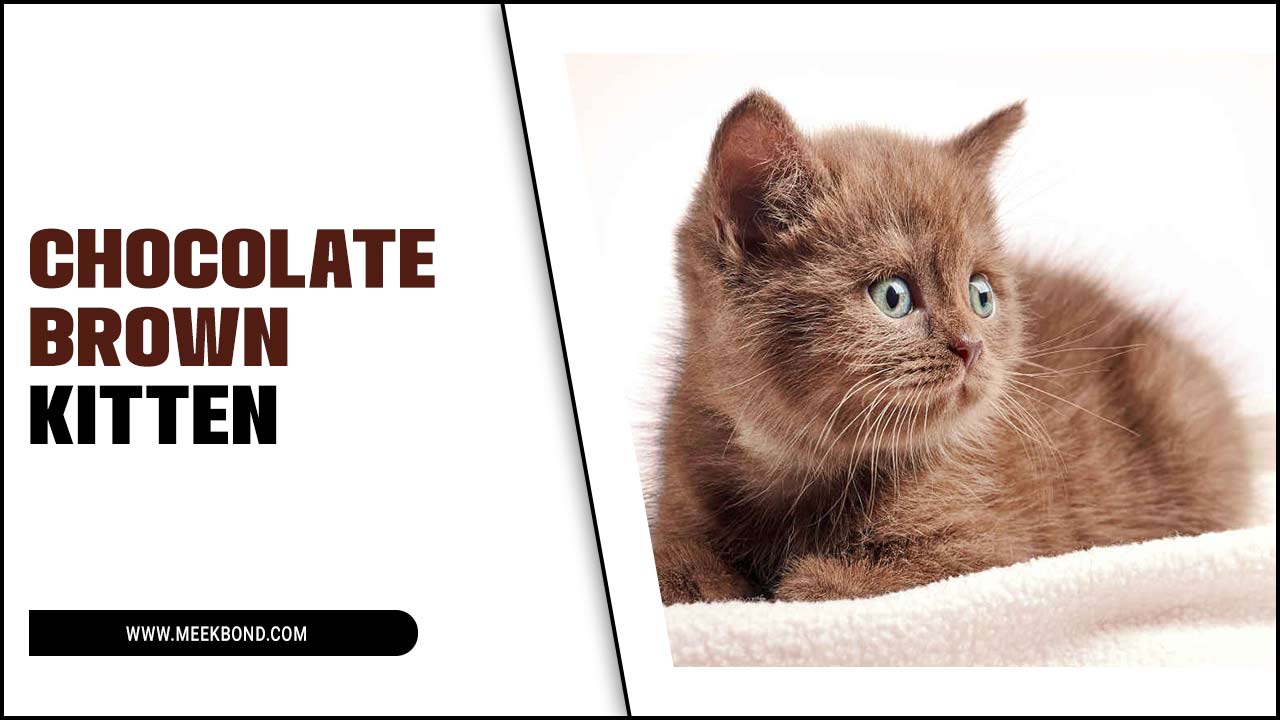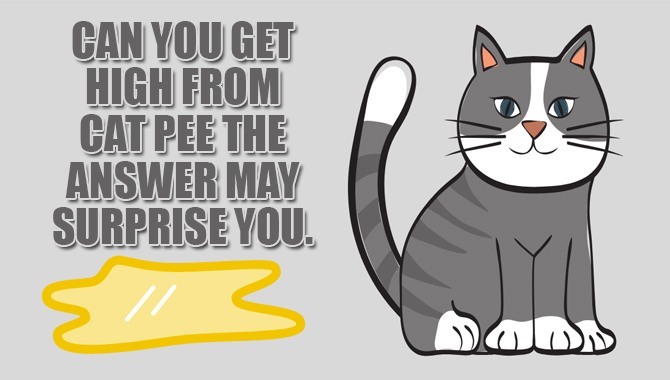As pet owners, we are responsible for monitoring and maintaining our furry friends’ health. One aspect of their well-being that we may overlook is their anal health. It can be concerning if you’ve recently noticed a white discharge from your cat’s anus.
Luckily, this common issue has a range of causes and solutions that can be easily addressed. Here, we’ll dive into what causes white discharge in cats and explore practical solutions to alleviate this issue. It’s important to note that not all types of discharge are the same. White discharge is typically caused by glandular issues, which can develop due to dietary or medical reasons. Here we’ll discuss the common causes of white discharge from cat anus.
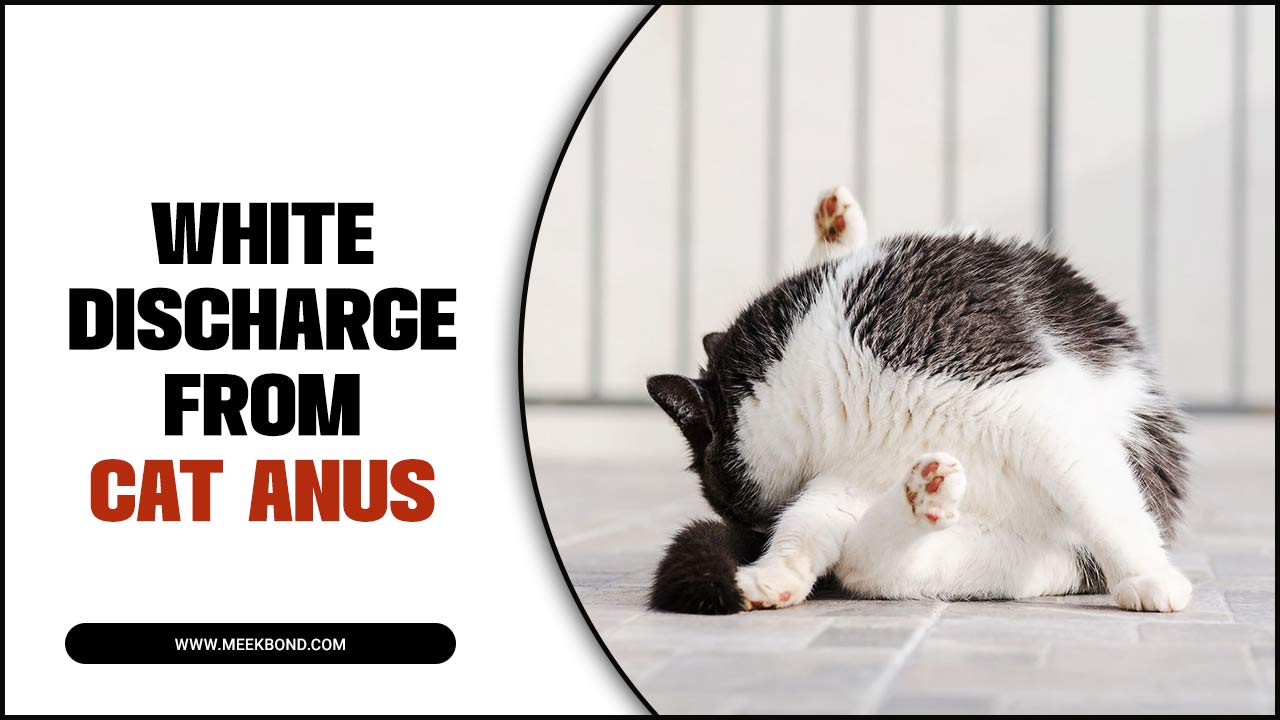
Possible Causes Of White Discharge From A Cat’s Anus
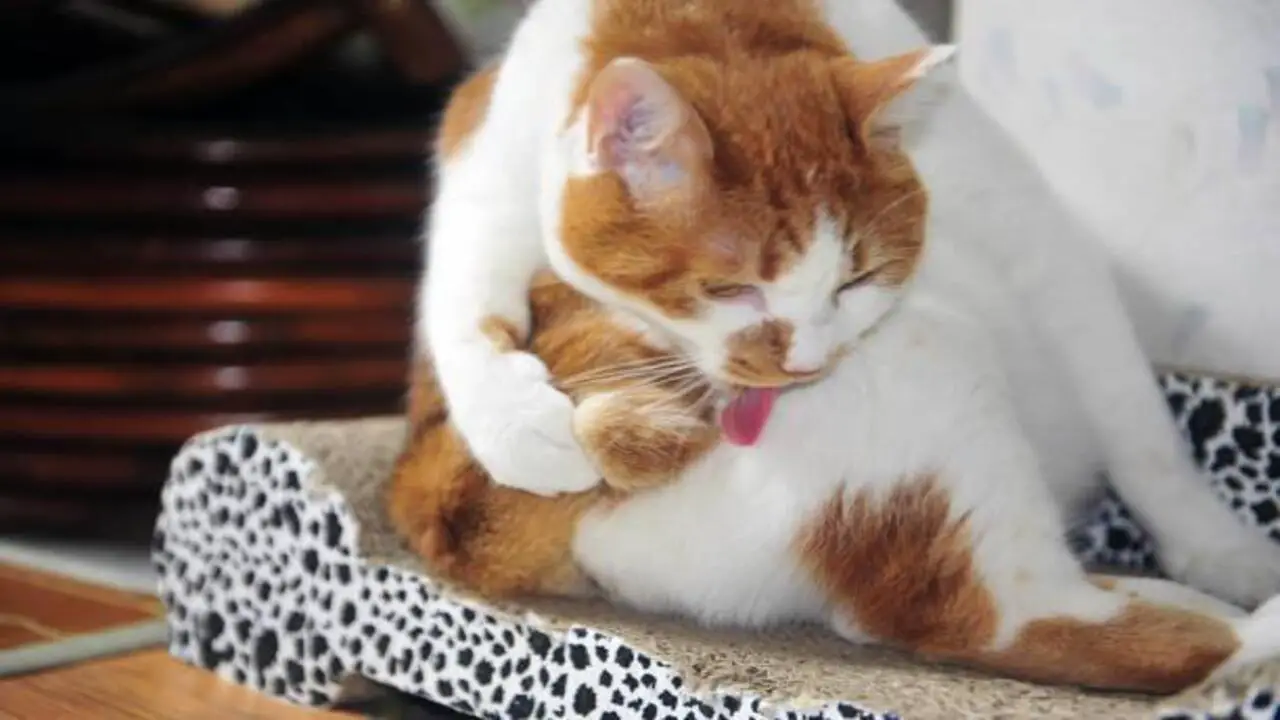
White discharge from a cat’s anus could indicate various health issues, and it is important to seek veterinary attention immediately. The discharge may indicate an infection, inflammation, or a blockage in the cat’s rectum. There are several possible causes of white discharge from a cat’s anus, including:
- Anal gland issues: Cats have anal glands that can become impacted or infected, producing abnormal discharge.
- Parasites: Certain parasites, such as tapeworms, can cause white or rice-like segments to be expelled from the anus.
- Inflammatory bowel disease: This condition can cause inflammation in the digestive tract, which may result in abnormal discharge.
- Infections: Bacterial or yeast infections in the gastrointestinal tract can produce white discharge.
- Allergies or dietary intolerance: Some cats may have allergies or intolerances to certain foods, which can cause gastrointestinal issues and abnormal discharge.
If you notice a white discharge from your cat’s anus, it is important to consult with a veterinarian for a proper diagnosis and appropriate treatment. They can examine your cat and perform any necessary tests to determine the underlying cause and provide the necessary care.
How To Treat White Discharge From Cat Anus
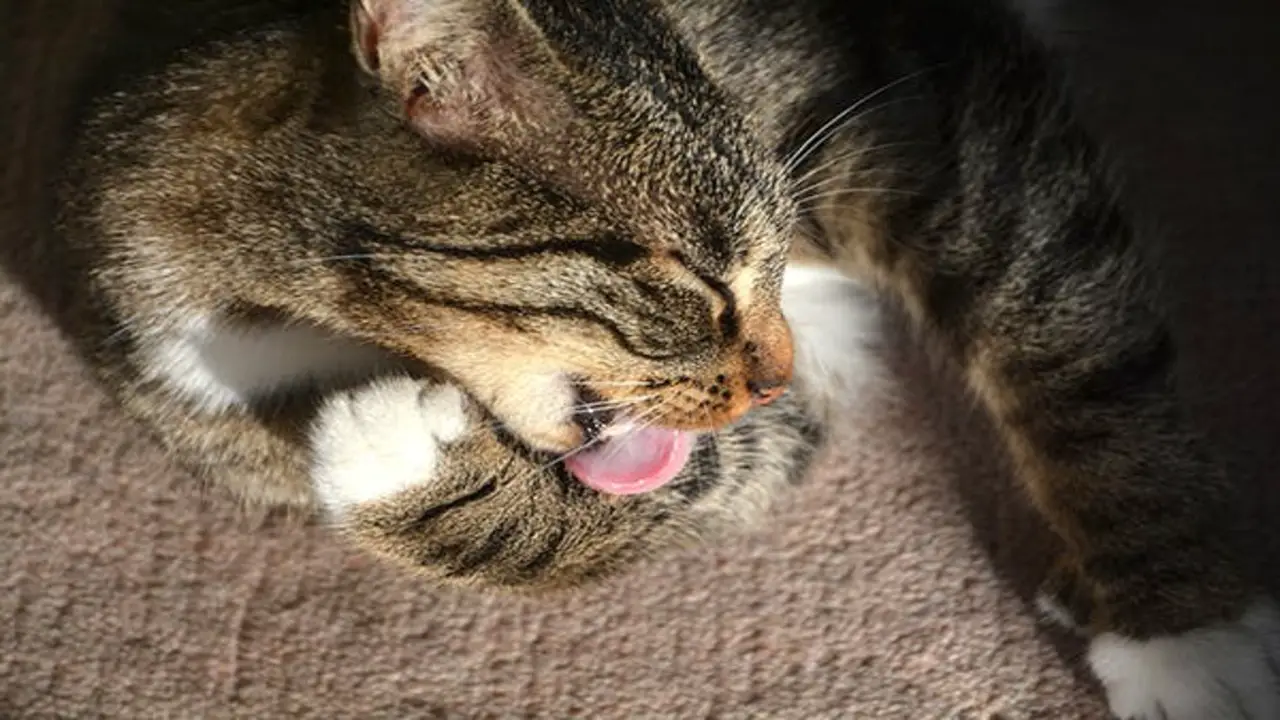
If you notice a white discharge from cat anus, taking the necessary steps for their well-being is essential. The causes of this issue can include anal gland issues, urinary tract infections, and parasites. It is crucial to consult a veterinarian to ensure the proper diagnosis and treatment plan. They may recommend antibiotics, expression of anal glands, or deworming medication as treatment options.
Prevention is key to maintaining your cat’s health. Regular veterinary check-ups, a balanced diet, and keeping the litter box clean can help prevent white discharge from the cat’s anus. Timely veterinary care is crucial, as untreated discharge can lead to serious health problems. You can address the issue and promote your cat’s overall well-being by taking the necessary steps.
Common Medical Conditions That Can Cause White Discharge In Cats
If you notice a white discharge coming from your cat’s anus, it could indicate several underlying health issues. Various factors, including infections, parasites, and dietary issues, may cause the discharge. White discharge from a cat’s anus can indicate several medical conditions. It is important to note that only a veterinarian can provide an accurate diagnosis and treatment plan for your cat. However, here are some common medical conditions that can cause white discharge from a cat’s anus:
- Anal sac disease: The anal sacs in cats can become infected or impacted, leading to discharge.
- Parasitic infections: Certain parasites, such as tapeworms, can cause abnormal discharge from the anus.
- Feline viral respiratory disease complex: This group of viruses can cause respiratory symptoms and gastrointestinal issues, including discharge from the anus.
- Inflammatory bowel disease: This condition can cause inflammation and irritation in the digestive tract, resulting in abnormal discharge.
- Rectal prolapse: Rectal prolapse can occur in rare cases, which may result in discharge.
It is crucial to consult with a veterinarian if you notice any unusual symptoms or changes in your cat’s health to ensure proper diagnosis and treatment.
Steps To Take When You Notice A White Discharge From Your Cat’s Anus
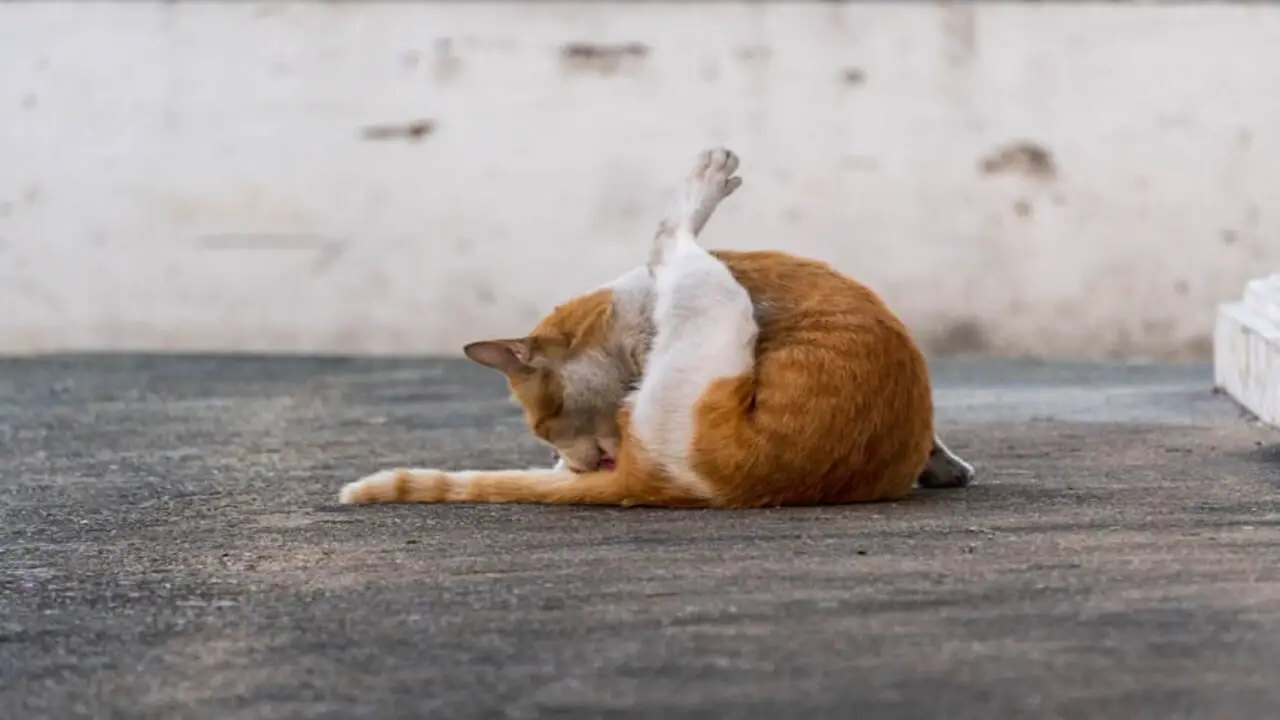
When you notice a white discharge from your cat’s anus, it is important to take action to ensure their health and well-being. This discharge can indicate various conditions, including parasitic infections, bacterial infections, or even a more serious underlying medical condition. White discharge can signify various issues, including infections, parasites, or digestive problems. Here are some steps you can take when you notice this symptom:
- Monitor your cat’s behaviour: Keep an eye on your cat’s overall behaviour and look for any other signs of discomfort or distress. This can help provide additional clues about the underlying cause of the white discharge.
- Schedule a veterinary appointment: It is crucial to consult with a veterinarian to diagnose the issue and determine the appropriate treatment accurately. The vet will conduct a thorough examination and may request additional tests or samples for further analysis.
- Provide necessary information: During the vet visit, be prepared to provide detailed information about your cat’s symptoms, diet, and any recent changes in their environment or routine. This will assist the vet in making an accurate diagnosis.
- Follow the vet’s recommendations: Once a diagnosis has been made, follow the vet’s advice regarding medication, dietary changes, or other necessary treatments. It is important to adhere to their recommendations to promote your cat’s recovery.
Remember that every cat is unique, and there can be various causes for white discharge from the anus. Prompt veterinary care is essential for proper diagnosis and treatment tailored to your cat’s needs.
Seeking Veterinary Advice And Diagnosis For Proper Treatment
A white discharge from your cat’s anus could signify various underlying conditions such as parasites, infections, or issues with the anal glands. Seeking veterinary advice and diagnosis is crucial to treat the white discharge’s root cause properly. Depending on the specific condition, treatment options may include medication, dietary changes, or surgical intervention.
It’s important to have regular check-ups for your cat and take preventive measures such as maintaining proper hygiene to minimize the risk of white discharge from occurring.
As a responsible pet owner, paying attention to any changes in your cat’s behaviour or health is essential and you should seek professional help if needed. Your veterinarian will be able to provide an accurate diagnosis and recommend the appropriate course of treatment to address the issue effectively.
Home Remedies And Treatments To Try For Mild Cases
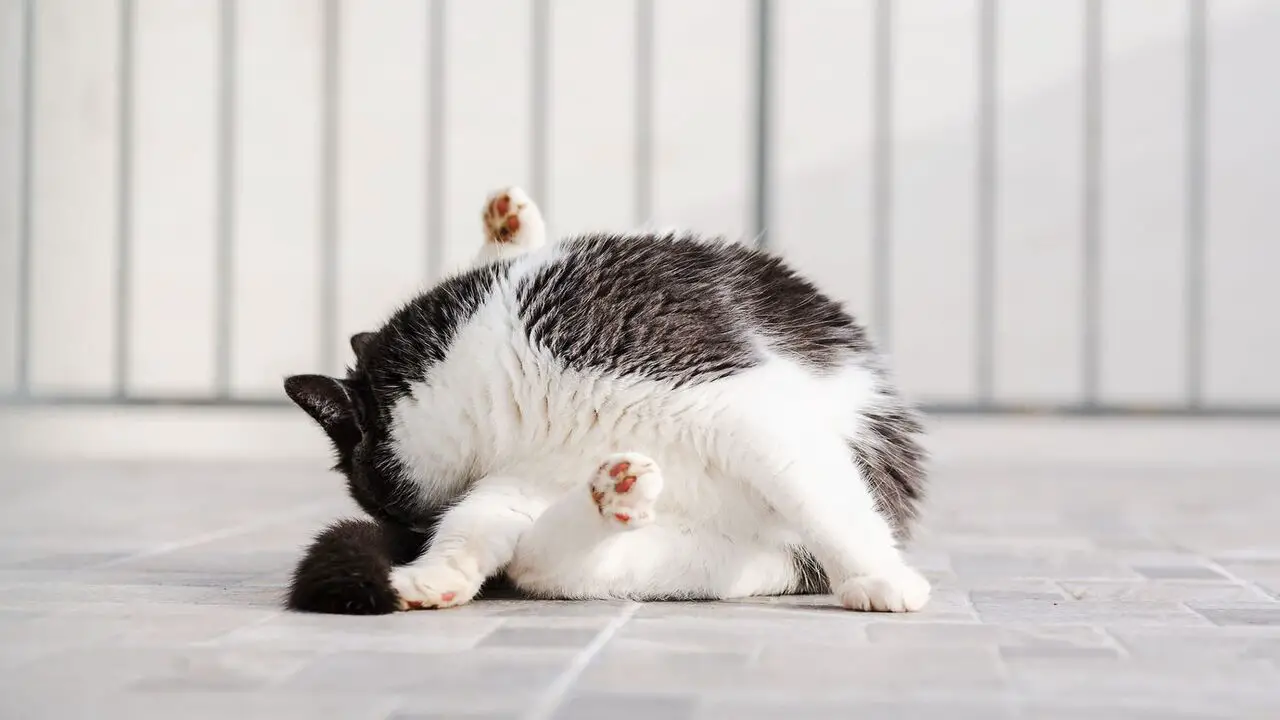
White discharge from a cat’s anus can be concerning, but in some cases, it may be a sign of a mild issue that can be treated at home. If the discharge is not accompanied by symptoms such as diarrhoea or vomiting, you can try a few home remedies and treatments to alleviate the problem. First, clean the area by gently wiping it with a damp cloth or using pet-safe wipes.
You can also try adding a small amount of plain, unsweetened yoghurt to your cat’s diet, as this can help promote healthy digestion and reduce inflammation. Additionally, ensure that your cat has access to fresh water and consider feeding them a high-quality diet free from artificial ingredients and fillers. If the discharge persists or is accompanied by other symptoms, it is important to consult a veterinarian for further evaluation and treatment.
Importance Of Maintaining Good Hygiene For Your Cat’s Overall Health
Maintaining good hygiene for your cat is essential for their overall health and well-being. If you notice a white discharge from your cat’s anus, it is important to address this promptly. White discharge can signify various health issues, such as an infection or inflammation in the anal area.
It is advisable to consult with a veterinarian to determine the underlying cause and appropriate treatment options. In the meantime, you can help maintain good hygiene by gently cleaning the affected area with a damp cloth and keeping your cat’s litter box clean and sanitized. Always prioritize your cat’s health and seek professional advice when needed.
Preventive Measures To Minimize The Risk Of White Discharge In Cats
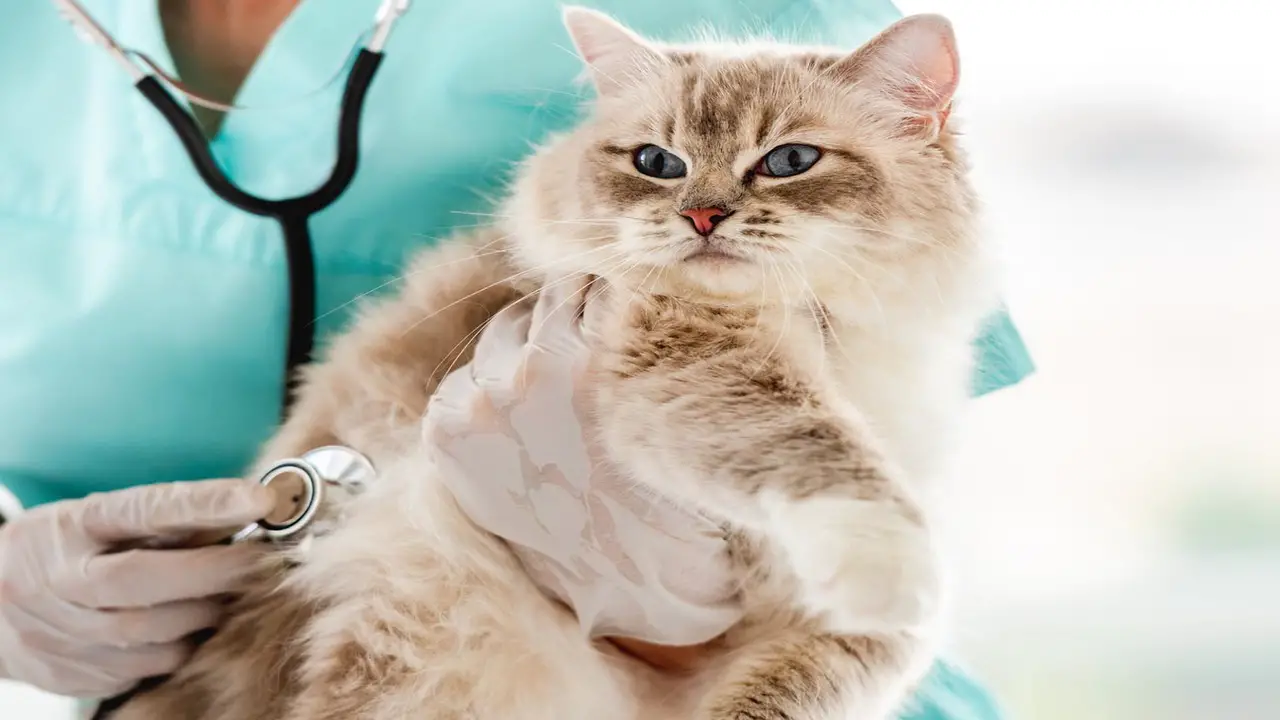
You can take several preventive measures to minimize the risk of white discharge in cats. First and foremost, keeping your cat’s litter box clean is crucial in preventing bacterial infections that can lead to discharge. Regularly cleaning and sanitizing the litter box will help maintain a healthy environment for your cat.
- Another important preventive measure is feeding your cat a balanced diet that promotes good digestive health. A well-balanced diet can help prevent issues such as diarrhoea, which can contribute to the development of white discharge. Ensure you provide your cat with high-quality food that meets their nutritional needs.
- Regular grooming, particularly in the anal area, is also essential in preventing matting and blockages that can lead to discharge. Keeping the area clean and free from any obstructions can reduce the risk of white discharge.
- Visiting the vet regularly for check-ups and preventative care is another important step in minimizing the risk of white discharge. Your vet will be able to monitor your cat’s overall health and address any potential issues before they escalate.
- Finally, if you notice any unusual discharge or behaviour in your cat, it is important to seek veterinary attention promptly. Early detection and treatment can often prevent more serious issues from arising.
Following these preventive measures can help minimize the risk of white discharge in cats. Remember, maintaining good hygiene, providing a balanced diet, and seeking regular veterinary care are your best bets in keeping your cat healthy and free from any discharge issues.
Tips For Promoting A Healthy Digestive System In Cats
If you notice a white discharge from your cat’s anus, it may be a sign of some underlying health issues. Some of the most common causes of white discharge from the cat’s anus include infections, allergies, and dietary issues. Maintaining a healthy digestive system is important for your cat’s overall well-being. If you notice a white discharge from your cat’s anus, it could indicate an underlying issue that needs attention. Here are some tips to promote a healthy digestive system in cats:
- Provide a balanced diet: Make sure your cat is getting a nutritious and balanced diet that meets their specific dietary needs.
- Monitor water intake: Ensure your cat can access fresh water to prevent dehydration and aid digestion.
- Regular exercise: Encourage physical activity to help stimulate digestion and prevent constipation.
- Maintain litter box hygiene: Clean the litter box regularly to prevent the build-up of bacteria and parasites that can cause digestive issues.
- Regular vet check-ups: Schedule regular check-ups with your veterinarian to monitor your cat’s overall health and address any digestive concerns promptly.
Remember, if you have concerns about your cat’s health, it is always best to consult a veterinarian for proper diagnosis and treatment.
When To Seek Immediate Veterinary Attention For White Discharge In Cats
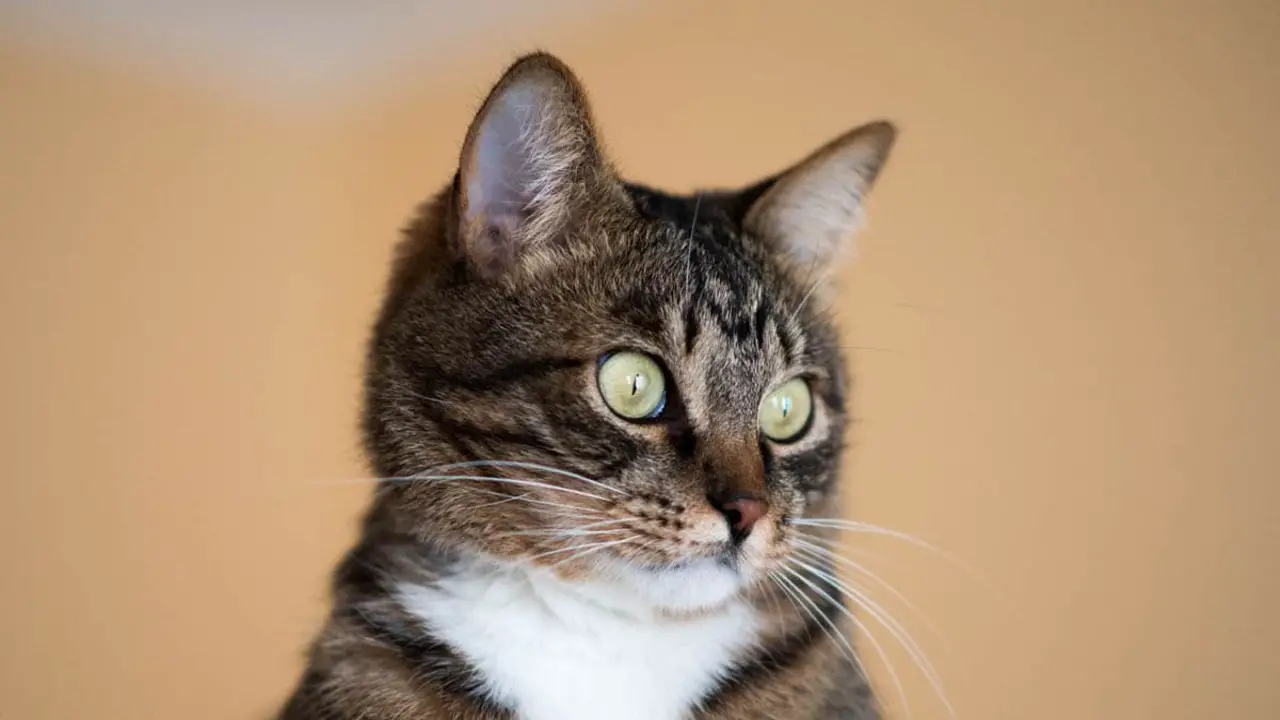
A white discharge from your cat’s anus could indicate an underlying health issue such as infection or inflammation. It is important to pay attention to other accompanying symptoms, such as lethargy or decreased appetite, as these may warrant immediate veterinary attention.
The treatment for white discharge in cats will depend on the underlying cause, and your veterinarian may prescribe antibiotics or other medications. To prevent white discharge and other health issues in cats, keeping their litter boxes clean and providing them with a healthy diet is recommended.
Regular check-ups with your veterinarian can also help catch potential health problems early on before they become more serious. Remember that seeking veterinary advice is your best bet regarding your cat’s health and well-being.
Conclusion
If you notice a white discharge from your cat’s anus, it is important to take prompt action. While some cases may be mild and can be treated at home with proper hygiene and remedies, seeking veterinary advice for a proper diagnosis and treatment plan is crucial. Maintaining good hygiene for your cat and promoting a healthy digestive system can help minimize the risk of white discharge.
Remember, your cat’s overall health and well-being are important, so don’t hesitate to seek immediate veterinary attention. By being proactive and attentive to your cat’s health, you can ensure they have a happy and comfortable life. We have provided bulk information for and hope our information was helpful from your perspective.
Frequently Asked Questions
No schema found.
Aquarium passion is all about connecting with the aquatic life and providing education to the public on the importance of these creatures. We showcase a wide variety of marine life through our exhibits as well as working with schools to provide unique learning opportunities for students of all ages.

